From Denmark to Australia, Mohammad Nabi creates history by becoming first player to win against 46 different teams as Afghanistan bamboozles South Africa
Big News: ICC comes up with massive rule change ahead of T20 World Cup to double up the thrill of cricket
International Cricket Council (ICC) to implement Stop Clock rule in ODIs and T20Is to address the slow over rate issue. Notably, the Stop Clock rule will come into play from T20 World Cup.

The International Cricket Council (ICC) is taking steps to ensure matches in limited-overs formats (white-ball cricket) finish on time. They are making the ‘stop clock rule’ a permanent fixture in the game's official regulations. This rule was initially introduced on a trial basis in December 2023. However, after finding it successful, the ICC has decided to implement it permanently. It will be officially incorporated into the playing conditions starting from the upcoming T20 World Cup scheduled for June 2024 in the West Indies and USA.
ICC to introduce Stop Clock rule in ODIs and T20Is
Notably, the Stop Clock rule requires the use of an electronic clock displayed between overs. This clock will be a crucial element, as the fielding team will be required to bowl the first ball of their next over within 60 seconds of the previous over ending.
How does the Stop Clock rule work?
The stop clock rule is a new regulation aims to address the issue of slow play in limited-overs cricket formats (ODIs and T20Is).
- After each over finishes, a timer starts automatically, visible on an electronic display.
- The fielding team has 60 seconds to start the next over.
- This means the first ball of the following over must be bowled within this timeframe.
- The third umpire manages the timer.
- For exceeding the 60-second limit, the fielding team receives two warnings from the umpires.
- Further delays after the warnings will result in a penalty of five runs being awarded to the batting team.
- Umpires hold the discretion to judge delays caused by the batting team, DRS reviews, or unforeseen circumstances. In such cases, the 60-second timer might not be strictly enforced.
ALSO READ: IPL vs PSL: The huge difference in prize money of two prominent T20 leagues
Notably, the stop clock rule was initially implemented on a trial basis but has now been adopted as a permanent regulation.
Benefits of Stop Clock Rule
- Aims to shorten match durations by minimizing time wasted between overs.
- Encourages a faster and more dynamic game flow.
Impact of Stop Clock Rule in Tight Matches:
The newly implemented stop clock rule is expected to play a crucial role, particularly in close encounters.
A five-run penalty for exceeding the time limit between overs can significantly impact the outcome of the game, potentially even shifting the momentum in high-pressure situations.
While the focus is on the permanent implementation of the stop clock rule, other crucial topics are likely to be addressed during the ICC meeting.
An important point of discussion also revolves around India's reluctance to travel to Pakistan, the designated host nation for the upcoming Champions Trophy. This situation presents a similar scenario to the 2023 Asia Cup, where Pakistan was initially planned as the sole host.
To address the issue, the Asia Cup was ultimately held in a "hybrid model." Pakistan hosted a limited number of matches, with the remaining games taking place in Sri Lanka.
MORE ON SPORTS TAK:
EXCLUSIVE: Ajinkya Rahane says 'I am not in bad form' after Mumbai's Ranji Trophy triumph, wants to do same in IPL
LSG sign former Australia batter with 61.87 Test average as consultant a week ahead of IPL 2024
Will captain Shreyas Iyer join KKR camp in IPL 2024 after injury scare? New update clears the air
Popular Posts
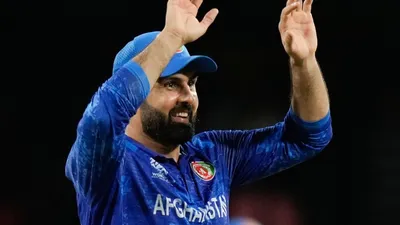
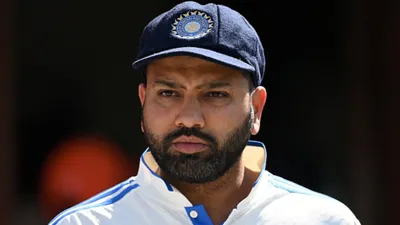
IND vs BAN 1st Test LIVE streaming: When and where to watch 1st Test between India and Bangladesh
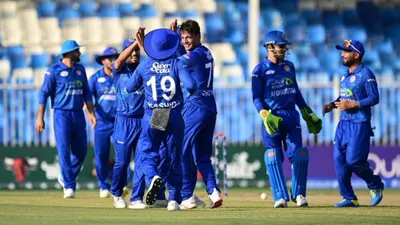
AFG vs SA 1st ODI: Historic moment for Afghanistan, beat South Africa for first time in cricket
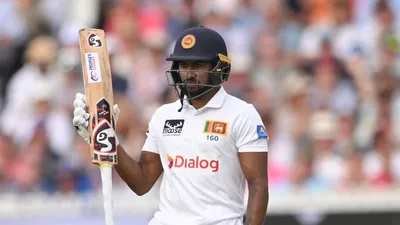
Kamindu Mendis surpasses Sunil Gavaskar and equals Pakistan sensation with century against New Zealand
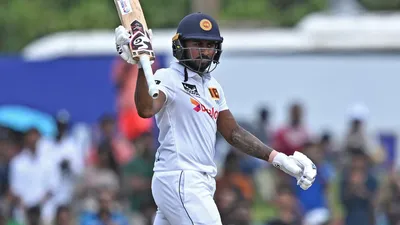
SL vs NZ 1st Test: Kamindu Mendis' century helps Sri Lanka post 302/7 at Stumps Day 1
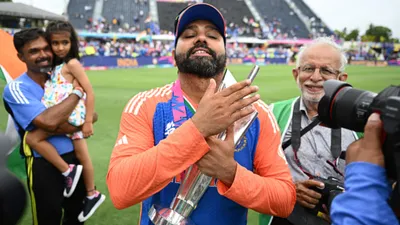
'Retirement has become a joke..players from other countries': Rohit Sharma takes indirect dig at Pakistan players
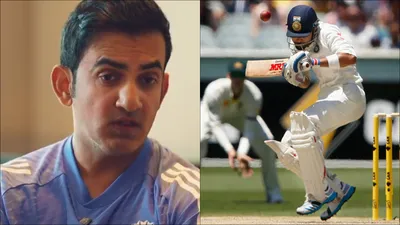
Gautam Gambhir reveals Virat Kohli chanted 'Om Namah Shivay' before facing every delivery from pacers during 2014-15 tour of Australia
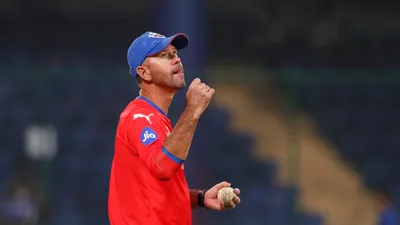
'Way forward and was truly..': Ricky Ponting reacts to becoming Punjab Kings' new head coach ahead of IPL 2025
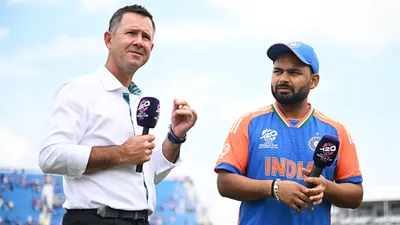
Punjab Kings appoint Ricky Ponting as head coach two months after he ends seven-year journey with Delhi Capitals: Report
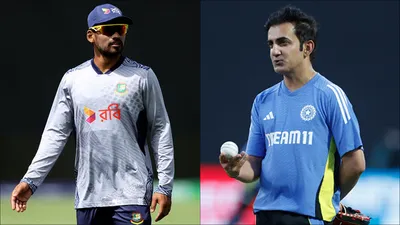
'I congratulate them for what they did in Pakistan but...': Gautam Gambhir has respect Najmul Hossain Shanto's side but not a shred of fear


